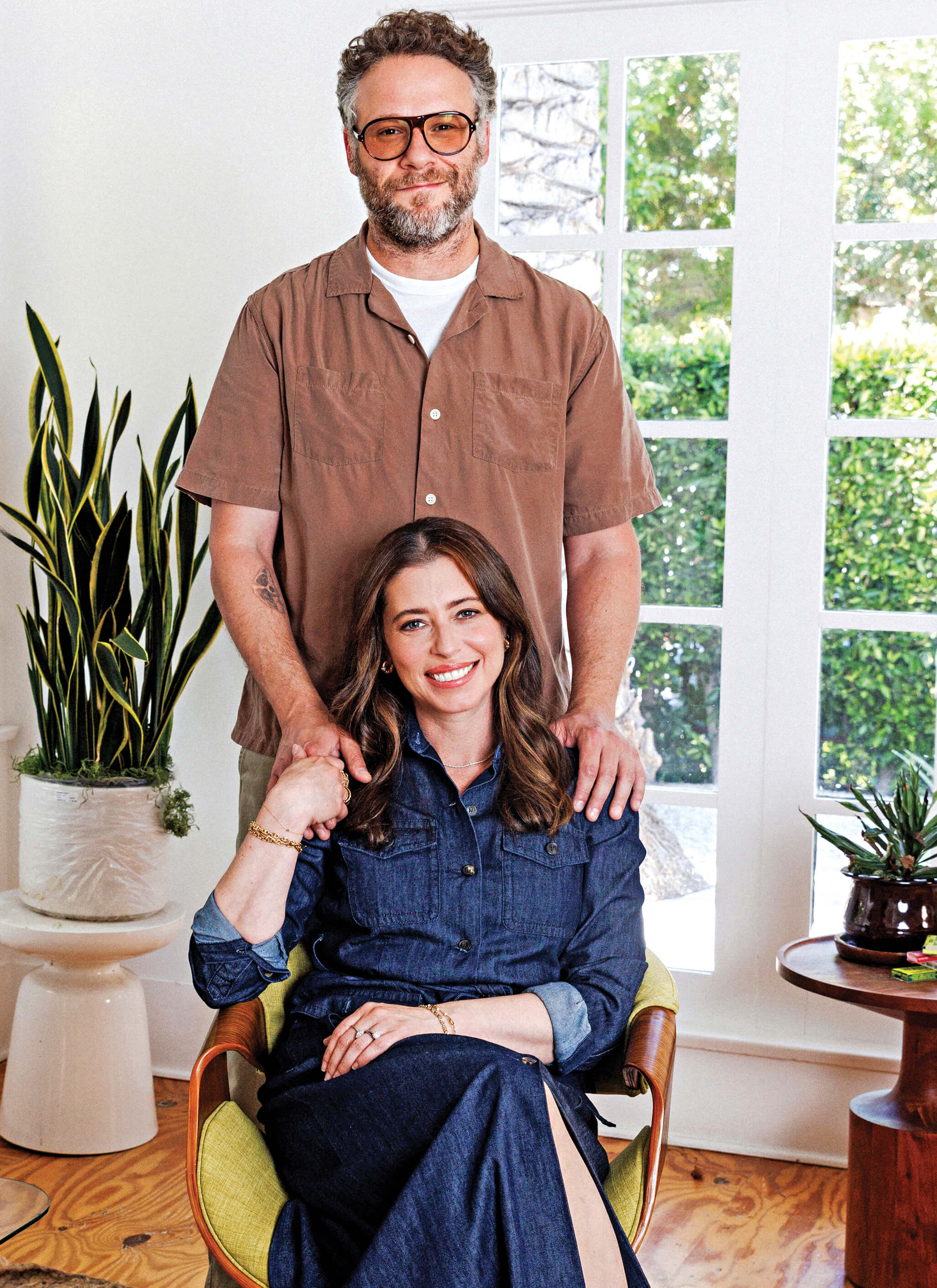Q&A with Seth & Lauren Rogen
“IT WAS SCARY AND UNNERVING, AND I FELT SO ALONE.”
—ACTORS/FILMMAKERS SETH ROGEN, 42, AND LAUREN MILLER ROGEN, 43, HAVE PRODUCED A SHORT FILM DOCUMENTING LAUREN’S LATE MOTHER’S STRUGGLES WITH EARLY-ONSET ALZHEIMER’S DISEASE

How did this documentary come about?
Lauren: My mom’s condition really advanced in 2008, when suddenly I had a [smartphone] camera with me. She was slamming doors and screaming at nothing. It was this mind-blowing moment of “This person is so far from who my mom was.” It was scary and unnerving, and I felt so alone. And I just was like, “I’ve got to film this.” If people knew that this was the reality, it wouldn’t be whispered about. Everyone would be taking action.
Seth, do you think that, because you work in comedy, when you talk about such a serious matter, people will take more notice?
Seth: Yeah, I think people probably are confused at first that I’m speaking about this in any way, shape or form. But I also think the type of comedy I’ve done and the type of movies I’ve made have been based on my real life and the things I’m experiencing. We made a movie, 50/50, about my 25-year-old horny friend having cancer that he survived.
Lauren, your mom didn’t want others to know about her disease while she was alive. Why not?
Lauren: I’d say it’s society’s fault that my mom wanted to keep it a secret. She had seen both of her parents go through it, and she was diagnosed only four years after my grandmother passed away. I can only imagine how terrifying that was for her. She wanted to maintain her independence as much as she could, until she couldn’t. I understand why she wanted to keep it a secret, but that doesn’t mean it wasn’t really hard for me to keep it a secret.
Seth, what was it like dating someone who was dealing with such a huge emotional issue?
Seth: Honestly, I had never been in a serious relationship of any type before, so I had nothing to compare it against. I felt very bad for her. I could support her and love her, but I couldn’t actually untangle how to address any of these problems. I implored Lauren to go to therapy. Some people come from families where they don’t like to delve deep. My family can’t wait to indulge in the emotional darkness.
Lauren: I wasn’t like “No, I won’t go to therapy.” I was like, “I feel terrible. I’ll do anything to feel better.”
What have you learned about being a caregiver from seeing Lauren’s dad do it?
Seth: Because of how hard it is, we were like, “This will kill him. He will drop dead trying to lift Lauren’s mother from one chair to another one day.”
Lauren: We were like, “This is not sustainable. You’ve got to move to California [from Florida] and we can be close.” And that’s what they did.
In the documentary, your dad is taking your mom home from your wedding, and she starts yelling at him when they get off the plane. It just seems like, What do you do?
Lauren: Life seems to be highs and lows. And that was that weekend. I truly hate that that happened and that’s part of my dad’s memory of our wedding weekend. But that’s life, and we’ve turned a lot of that pain into good. That was a learning experience, and then we moved on.
How many movie paychecks did it cost to care for someone with Alzheimer’s?
Seth: It depends which movie—either several, or one fraction of one. It’s hundreds of thousands of dollars a year to give someone good, 24-hour-a-day in-home care. And it’s not giving you anything other than some slight sense of normalcy. It’s not like you’re working toward a cure. It’s not treatment.
Lauren: Hopefully, as time goes on, our country will understand how to support caregivers. You should be able to make a choice of how you care for your loved one, whether in your home or in one that is professionally run.
Lauren, when you were rewatching some of these moments with your mother, what did you learn about yourself?
Lauren: There are times I can watch the film, and it’s like, “Oh this is a powerful documentary with a lot of information.” And there are other times I watch it and I’m like, “This was the darkest time in my life.” Seeing my mom and what this disease did to her is always imprinted on my mind. But like any type of grief, it’s more present sometimes and less other times. —Interview by Joel Stein
▶︎ WATCH TAKING CARE AARP members can watch this 38-minute documentary for free through Jan. 6 at aarp.org/MembersEditionBUL.
It will also be on Amazon, iTunes, Google Play, Fuse and Fuse+ in January. Learn more at takingcarefilm.com. The film was produced in conjunction with Hilarity for Charity, BrightFocus Foundation and AARP’s Brain Health Action.
JESSICA PONS